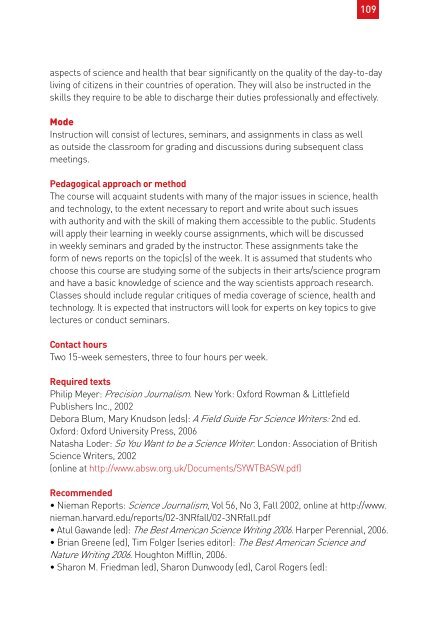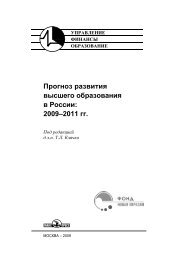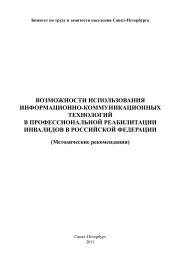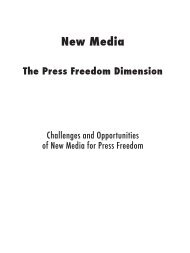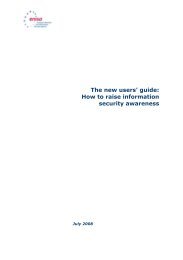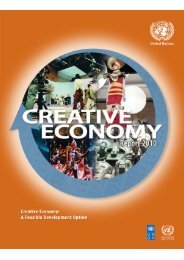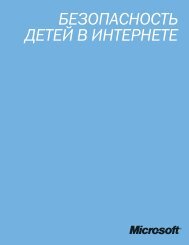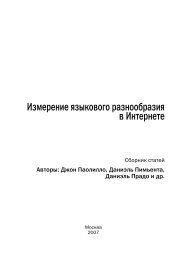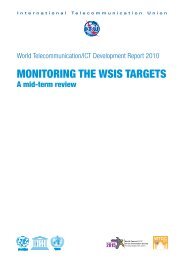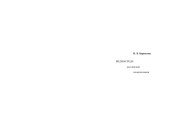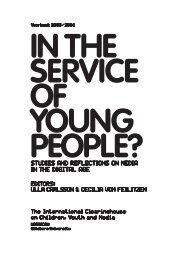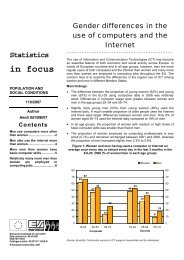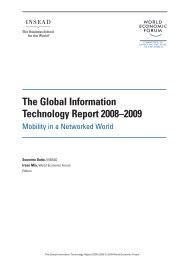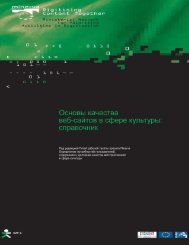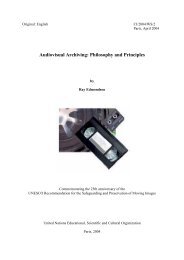Model curricula for journalism education for developing countries ...
Model curricula for journalism education for developing countries ...
Model curricula for journalism education for developing countries ...
Create successful ePaper yourself
Turn your PDF publications into a flip-book with our unique Google optimized e-Paper software.
109<br />
aspects of science and health that bear significantly on the quality of the day-to-day<br />
living of citizens in their <strong>countries</strong> of operation. They will also be instructed in the<br />
skills they require to be able to discharge their duties professionally and effectively.<br />
Mode<br />
Instruction will consist of lectures, seminars, and assignments in class as well<br />
as outside the classroom <strong>for</strong> grading and discussions during subsequent class<br />
meetings.<br />
Pedagogical approach or method<br />
The course will acquaint students with many of the major issues in science, health<br />
and technology, to the extent necessary to report and write about such issues<br />
with authority and with the skill of making them accessible to the public. Students<br />
will apply their learning in weekly course assignments, which will be discussed<br />
in weekly seminars and graded by the instructor. These assignments take the<br />
<strong>for</strong>m of news reports on the topic(s) of the week. It is assumed that students who<br />
choose this course are studying some of the subjects in their arts/science program<br />
and have a basic knowledge of science and the way scientists approach research.<br />
Classes should include regular critiques of media coverage of science, health and<br />
technology. It is expected that instructors will look <strong>for</strong> experts on key topics to give<br />
lectures or conduct seminars.<br />
Contact hours<br />
Two 15-week semesters, three to four hours per week.<br />
Required texts<br />
Philip Meyer: Precision Journalism. New York: Ox<strong>for</strong>d Rowman & Littlefield<br />
Publishers Inc., 2002<br />
Debora Blum, Mary Knudson (eds): A Field Guide For Science Writers: 2nd ed.<br />
Ox<strong>for</strong>d: Ox<strong>for</strong>d University Press, 2006<br />
Natasha Loder: So You Want to be a Science Writer. London: Association of British<br />
Science Writers, 2002<br />
(online at http://www.absw.org.uk/Documents/SYWTBASW.pdf)<br />
Recommended<br />
• Nieman Reports: Science Journalism, Vol 56, No 3, Fall 2002, online at http://www.<br />
nieman.harvard.edu/reports/02-3NRfall/02-3NRfall.pdf<br />
• Atul Gawande (ed): The Best American Science Writing 2006. Harper Perennial, 2006.<br />
• Brian Greene (ed), Tim Folger (series editor): The Best American Science and<br />
Nature Writing 2006. Houghton Mifflin, 2006.<br />
• Sharon M. Friedman (ed), Sharon Dunwoody (ed), Carol Rogers (ed):


